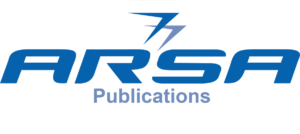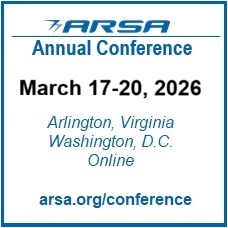ARSA, AEA Release Draft Canadian Compliance Guidance
ARSA and the Aircraft Electronics Association have produced an updated matrix supporting compliance of U.S. repair stations with the special conditions of the Maintenance Implementation Procedures (MIP) issued under the bilateral aviation safety agreement between the United States and Canada.
The advisory explains how to:
(1) Determine whether the repair station operations or quality manuals and other documents show compliance with the Revision 2 to the Special Conditions contained in the U.S.-Canadian MIP dated Sept. 9, 2025.
(B) Request authority to work on articles destined to be installed on Canadian-registered products under a FAA foreign repair station certificate.
The associations’ seek feedback regarding the new guidance. ARSA members should review the document and send comments to arsa@arsa.org.
To download the draft guidance document, click here (your browser will download the .doc file and place it in your downloads folder).
Previous updates on the FAA-TCCA MIP...
12/16/2025 - Canadian Compliance Matrix Updated Ahead of New MIP's Effective Date
December 16, 2025
On Sept. 9, the FAA and Transport Canada Civil Aviation (TCCA) released revision 2 of the Maintenance Implementation Procedures (MIP) issued under the bilateral aviation safety agreement between the United States and Canada. The new MIP becomes effective on Jan. 7, 2026.
The fully-reciprocal nature of the bilateral allows FAA-certificated repair stations and TCCA approved maintenance organizations to work on aircraft registered under each jurisdiction without holding an additional certificate or approval. The MIP requires U.S. based repair stations performing such work to comply with the special conditions of the agreement.
ARSA has updated its cross-reference matrix supporting compliance of U.S. repair stations with those special conditions. The matrix includes a “red-lined” version showing edits between revisions 1 and 2. The matrix is available as part of ARSA’s free “tools for members.” To request your updated copy, which is delivered as a .zip file containing the “tools,” complete the order form at arsa.org/publications.
Tools for ARSA Members | RSQM Compilation | Order Form | FAQ
2/11/20 - ARSA Leads Industry Letter to Repair FAA-TCCA MIP
February 11, 2020
On Feb. 3, ARSA led an international coalition of 13 U.S. and Canadian aviation associations to deliver a letter to Transport Canada Civil Aviation and the FAA raising two issues requiring correction in the Maintenance Implementation Procedures (MIP) between the two agencies. Representatives of Canadian and U.S. maintenance organizations, airlines, other owners and operators, suppliers, and manufacturers joined in.
The FAA-TCCA MIP “outline[s] the terms and conditions under which the FAA and TCCA can accept each other’s inspections and evaluations of FAA-certificated repair stations and TCCA [Aviation Maintenance Organizations (AMOs)], as well as FAA-certificated airframe & powerplant (A&P) mechanics and TCCA-licensed aircraft maintenance engineers (AME).” The most succinct statement of this relationship is in 14 CFR § 43.17; reciprocal provisions are found in Canadian Aviation Regulations. In total, the regulatory relationship between the United States and Canada is the closest thing to bilateral mutual recognition of maintenance approvals of any similar agreement in the world.
But even the best plans sometimes go awry. ARSA Managing Director & General Counsel Marshall Filler and international colleagues found the issues with the MIP. Both were raised at the Maintenance Management Team (MMT) Industry Day meeting in Cologne, Germany in October 2019. One provision, repeated five times in the agreement, prohibits everyone (even manufacturers) from developing or using maintenance practices, processes, or procedures not included in the manufacturer’s manual or Instructions for Continued Airworthiness.
The other prevents Canadian owners and operators from using most FAA-certificated and appropriately rated foreign repair stations that are qualified to perform work on Canadian articles. (This is an exception to the normal requirement that the article be located in the U.S. when the work is accomplished.) This restriction limits Canadians’ choices in such situations to the manufacturers’ repair stations or their preferred maintenance partners. In addition to reducing competition, it delegates to the manufacturers the authority properly exercised by the regulator, in this case the FAA, to determine whether a particular repair station is qualified to perform the requested work.
One day after the coalition’s letter was sent, TCCA advised that it “will be introducing changes that will resolve these concerns.” TCCA representatives are expected to brief the industry on the anticipated changes during the symposium portion of the ARSA Annual Conference on March 12 in Arlington Virginia.
To review the industry letter to TCCA and the FAA, click here.
4/8/11 - FAA and TCCA Sign New MIP
April 8, 2011
On March 14, 2011, the Federal Aviation Administration (FAA) and Transport Canada Civil Aviation (TCCA) signed the first revision to the Canadian Maintenance Implementation Procedures (MIP). This long awaited document corrects concerns that the Aeronautical Repair Station Association (ARSA) identified in 2007.
Most importantly it states that procedures contained in a repair station’s Canadian supplement are accepted by the FAA (The former MIP stated that the procedures were approved). Additionally, the revised MIP specifies its applicability to aircraft operated in commercial air service pursuant to part VII of the Canadian Aviation Regulations (CAR). Other changes include use of the term “mechanic” (instead of “airmen”) and identifying how major repairs and alterations are reported for Canadian aircraft.
The FAA must now update its guidance (currently contained in Advisory Circular 43-10B) to align it with the new MIP; it is ARSA’s understanding that changes to Order 8900.1 (the Flight Standards Information Management System (FSIMS)) are currently underway. Until such time, it is likely that repair stations may need to educate their local Aviation Safety Inspectors (ASIs) of the changes in the new MIP.
The new MIP is available here.
5/30/07 - ARSA Submits Recommended Changes to US - Canadian MIP and FAA AC 43-10B
May 30, 2007
ARSA submitted two letters to the FAA recommending changes to the U.S. – Canadian Maintenance Implementation Procedures (MIP) and AC 43-10B. In the first letter, ARSA identified the need for clarifying the reporting of major repairs and major alterations, noted inconsistencies with who is required to prepare a supplement, requested the MIP have a provision that would allow part 121 and 135 operators to perform maintenance for Canadian air carriers and documented that the appendix in the AC was not the officially approved MIP.
In the second letter, ARSA requested that the MIP be revised to make clear that only the procedures unique to Canada require approval. The letter also asks the FAA and the TCCA consider having the Canadian Supplement for U.S. repair stations be accepted rather than approved. Acceptance would be consistent with the FAA’s method for the EASA supplement and not impact safety.
10/30/06 - U.S./Canada MIP: FAA releases guidance
October 30, 2006
The FAA and the Transport Canada Civil Aviation Directorate (TCCA) have agreed to Maintenance Implementation Procedures (MIP) based on the Agreement for the Promotion of Aviation Safety, signed by the U.S. and Canada in 2000. Additionally, the FAA has issued an Advisory Circular outlining the key provisions of the MIP.The MIP (download a .pdf copy here, 1.0 mb) reiterates that FAA-certificated repair stations may perform maintenance, and approve for return to service, products under TCCA’s regulatory control. Canadian Approved Maintenance Organizations (AMOs) may maintain and approve for return to service products under the regulatory control of the FAA.In the past, U.S. repair stations could perform maintenance on Canadian products in a manner almost identical to their maintenance of U.S. products. AMOs working on U.S. products could do so in much the same way.The MIP’s requirement that repairs must be accomplished in accordance with data approved by or acceptable to the relevant country’s authority (FAA or TCCA) is not a new requirement. Rather, it clarifies one that existed before the MIP’s existence. The work done cannot exceed the scope of the ratings and limitations of the repair station or AMO, or the privileges of the Canadian Aviation Maintenance Engineer (AME) or A&P mechanic/IA holder performing the work.
While the MIP does not require U.S. repair stations to obtain TCAA certification or Canadian AMOs to be FAA-certificated, it does include significant new requirements for U.S. and Canadian maintenance providers.
In the U.S., the requirement that a mechanic with inspection authorization must approve a product for return to service only applies when the work is being performed under an A&P’s certificate. It does not apply when being done under an FAR part 145 certificate.
For Canadian AMOs, the employee or AME approving the product for return to service must be able to read, write and understand English. Also, if an AME makes the approval, he or she must not have performed the work.
Working for air carriers
Repair stations performing work on aircraft for CAR part IV or VII commercial operators or AMOs performing work on articles for FAR part 121 or 135 commercial operators must now include approved supplements in their manuals.
These supplements include procedures for ensuring that the work done is in accordance with FAA or TCCA regulations. The procedures include the use of approved data for major repairs or alterations, the availability of airworthiness directives to the personnel performing maintenance, and the training program, which ensures that each employee doing the maintenance “is capable of performing the assigned task.”
The MIP supplements requirements are located in paragraphs 3.2 (for U.S. repair stations) and 3.6 (for Canadian AMOs). The supplements must address the procedures in the MIP or point to the section in a facility’s repair station quality manual that addresses the requirements.
A repair station performing work on Canadian products must also allow the TCCA, or the FAA acting on the TCCA’s behalf, to inspect it for compliance or to investigate it. AMOs working on U.S. products must allow the FAA the same privilege.
Applicability of the MIP
The MIP became effective on October 30, 2006–60 days from the date it was signed. Any maintenance agreements entered into after that must meet the MIP requirements. For preexisting agreements, the repair station or AMO has six months from October 30 to meet the special conditions.
Update: FAA Releases AC 43-10B
The FAA has released AC 43-10B to provide guidance on the MIP and the special conditions applicable to U.S. and Canadian maintenance providers. Click here to download the new AC.
Publications Available
ARSA has developed a Domestic Model Canadian Supplement and a Domestic Model Canadian Cross-Reference Table with Additional Procedures. These models compliment the ARSA Domestic Model Repair Station Manual and provide domestic repair stations all the special conditions and required procedures to implement the MIP.
9/1/06 - New FAA, Transport Canada Maintenance Implementation Procedures Available
September 1, 2006
The Federal Aviation Administration (FAA) and Transport Canada’s Civil Aviation Directorate (TCCA) have signed a new Maintenance Implementation Procedures (MIP) agreement. Download the document here (note: it is a 1.0mb .pdf file). The MIP was signed Aug. 31. Advisory Circular 43-10B, which will provide guidance on the MIP, will be released “soon,” the agency told ARSA. ARSA will keep its members informed.









